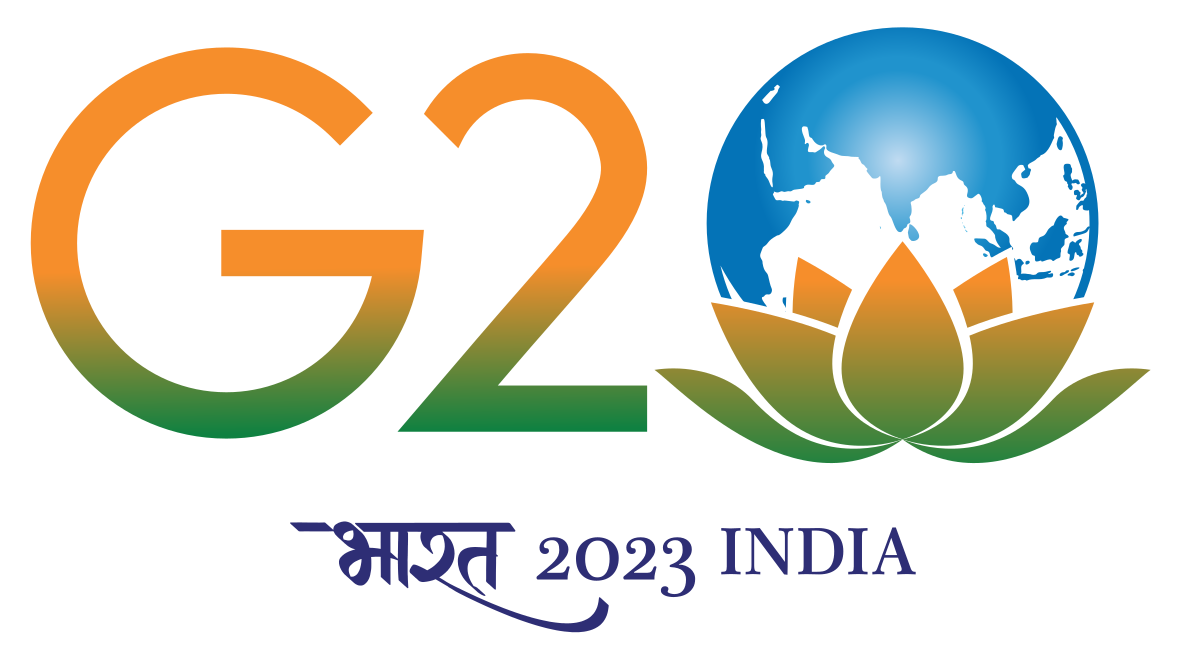Navigating Challenges and Opportunities: Previewing the 2023 G20 Summit
The upcoming Summit is occurring in the aftermath of BRICS expansion, deepening divisions over Ukraine, and an intensifying sense of multipolarity.
September 9th-10th, 2023 - These dates represent when the 20 largest economies and their respective representatives descend on New Delhi, India for this annual summit.
But this one is defined as much as, if not more, by what is occurring outside of it as what is and will likely occur at the summit itself.
Lets dive into some of the overarching aspects.
India's Global Ascent
India's Deepening Global Presence
Starting off with the hosts themselves, with the summit in New Delhi, it reflects India's rising influence. Hosting such a significant gathering signifies India's and particularly Modi’s desire to shape global agendas and assert his interests further.
Does that include the sudden announcement of renaming India to Bharat, as appeared on the official invitations?
The Expanding G20 Agenda
Under the overarching theme of "One Earth, One Family, One Future," the summit spotlighting environmental sustainability and responsible decision-making, underlying India's commitment to addressing transitional challenges, particularly those related to climate change and sustainability, given their disproportionate impacts for Global South nations, or for example, low-lying coastlines of India.
The country’ preparations are extensive, transforming the capital city of New Delhi with vibrant flowers, revitalised fountains, and freshly painted public buildings and pavements.
The construction of Bharat Mandapam, a sprawling exhibition centre near the iconic India Gate monument, is being interpreted by many as India's dedication to ensuring the summit's success and ensuring an indelible mark is made.
That said, there have criticisms over the removal of many poorer and homeless communities to make way for the reformations, especially since this is a narrative lesser-economically developed states tend to raise during high-profile events like these.
Persistent Problems: Divisions over Ukraine
Deepening Divisions
Profound divisions among G20 members, including many overlapping from the BRICS in August, have cast a shadow over the summit's proceedings.
Unsurprisingly, the most prominent is concerning the Ukraine War, along the lines of Ukraine-aligned, Russia-aligned, and others, including the hosts, India, remaining staunchly neutral.
The conspicuous absence of key leaders, specifically Vladimir Putin and Xi Jinping, has already raised significant concerns about any prospects of reaching a consensus during the summit.
The Risk of Bloc Formation
The growing chasm between Western and non-Western members also poses a substantial risk of bloc formation, likely undermining any global cooperation efforts.
The absence of Putin and Xi for some onlookers, could mean the summit becoming largely dominating by Western rhetoric (over Ukraine especially), which in itself may dilute it because of it becoming merely interpreted as nothing more than Global North countries dictating to the Global South.
Which with a theme on sustainability and so on, doesn’t exactly gel.
Moreover, it reflects a broader divergence set around democratic, mainly Western nations, and others, who pose non-democratic styles of government.
I had an in-depth, diverse conversation about how the divisions of the way we’re governed and how we prefer to live, trickles down into who we select or embrace as leaders, with CSIS fellow, Charles Dunst.
Just why do we like strongmen?
And as we’ve seen countless times before, any such divisions usually prevent the issuance of joint statements during ministerial meetings, leaving leaders to grapple with contentious issues.
Were this to be a ‘failed summit’ would explicitly expose the limitations of international cooperation, at a time it is grossly missing.
But before rushing into assuming its solely between Western and non-Western powers, that isn’t the case…
China's Absence and Sino-Indian Relations
Strained Sino-Indian Relations
China's decision to abstain from the summit underscores the enduring tensions between the two Asian giants, fueled by longstanding issues:
their persisting border dispute (worsened more by Beijing’s revised border map published recently),
trade conflicts,
and India's gradual, but still unsettling (for China), alignment with the US.
Indeed, the Indo-Sino border dispute, which escalated in deadly clashes in 2020, has transformed into a protracted standoff, marked by significant military deployments on both sides.
China's Reluctance and Implications
More broadly, China's reluctance to participate in global summits, carries broader implications for its interactions with other world leaders, particularly President Biden, who specifically called out desire to engage Xi at the G20.
And it will inevitably raise questions about China's willingness to engage in other global forums, such as the Asia-Pacific Economic Cooperation leaders meeting in San Francisco.
Why does China deem itself not necessary to attend some meetings, yet others? In that case, why should other members bother to engage China or see it as the counterbalancing leader to the US, that Xi increasingly want’s it to be?
Despite China's characterisation of its relations with India as "generally stable," the two nations continue to grapple with overlapping challenges not simply untangled.
And speaking of entanglement, this doesn’t improve when considering the continued emphasises of decoupling from China.
Or in growing circles ‘derisking’, and on the other side, ‘near-shoring’/friendshoring’ - but all of which are about a reduction in exposure and reliance to China in exchange for more reliable partners.
Of which India reflects a primary example; and that China knows all too well.
Indeed, these tensions, however, subtle they may be, have led to the expulsion of journalists and a significant decline in educational exchanges between the two nations.
All Eyes On New Delhi
The 2023 G20 summit is always supposed to serve as a pivotal platform for addressing global challenges, fostering cooperation, and shaping international agendas.
But this one, given many exogenous factors, may struggle to.
While India's ascent as a global player is evident in its role as host, the summit faces formidable challenges and divisions that have the potential to hinder consensus.
Divisions over Ukraine and strained Sino-Indian relations pose significant hurdles to achieving consensus, and these are themes that are just touched on at the surface-level.
Let’s wait to see what emerges.



